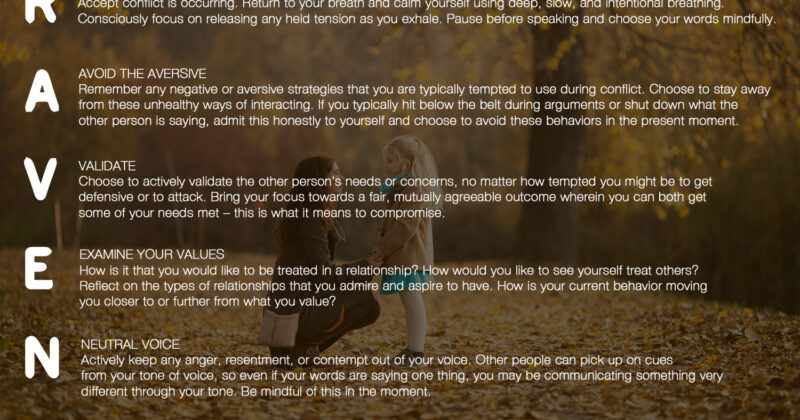
Parenting Behaviors and Mental Illness – Negotiating Skill RAVEN
Interpersonal Effectiveness: Negotiate with R-A-V-E-N
The next time that you find yourself in an interpersonal situation with the sense that your needs are not being effectively stated, met, or understood, try approaching the interaction using these DBT (Dialectical Behavioral Therapy) interpersonal effectiveness skills. Conflict is not necessarily “bad.” It is possible to approach potential conflicts with an attitude of mindfulness, the ability to tolerate distress, emotion regulation, and effective use of interpersonal skills. Consider the idea of negotiation as being respectful of your own and the other person’s needs, wishes, and emotions while working together to find a balanced solution that is in each person’s best interest.
Relax
Begin by accepting that conflict is occurring. Return to your breath and calm yourself using deep, slow, and intentional breathing. Consciously focus on releasing any held tension as you exhale. Pause before speaking and choose your words mindfully.
Avoid the aversive
Remember any negative or aversive strategies that you are typically tempted to use during conflict –...


